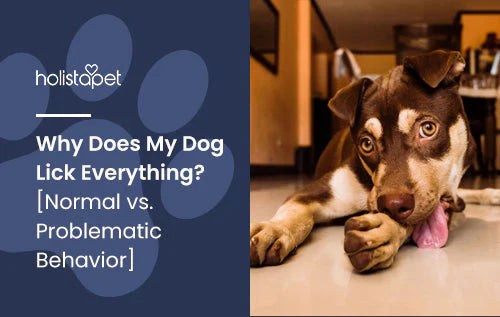Is your pup turning your yard into their personal excavation site? While figuring out how to stop a dog from digging can be challenging, it’s far from impossible. Dogs dig for many reasons—boredom, curiosity, or even to cool off in the dirt. With the right approach, you can curb this habit and keep your yard intact.
From creating a designated digging area to clever tricks like chicken wire, there are plenty of solutions to try. Stick around for tips that’ll teach your dog to keep their paws busy in more yard-friendly ways. Let’s dig into it!
Why Do Some Dogs Dig?

Digging isn’t just random mischief. It’s rooted in your pup’s natural instincts! Dogs dig for reasons like exploring their surroundings, escaping the heat, or even trying to track down other animals.
For many dogs, it’s a mix of fun and instinct. Whether it’s a puppy exploring the ground or a seasoned digger, understanding their motivation is the first step in figuring out how to stop a dog from digging.
Common Reasons for Digging Behavior
Dogs love to dig, but why? Let’s break it down with some fun facts:
- Seeking Comfort. On hot days, dogs dig into the cool dirt to beat the heat. It’s their version of air conditioning!
- Hunting Instinct. Many dogs pick up scents of other animals, like rodents, and try to find the source by digging.
- Escaping. Some dogs dig near the fence line to create an escape route. Houdini has nothing on them!
- Boredom Buster. Without enough playtime or exercise, digging becomes a way to burn off energy.
- Burying Treasures. Dogs often bury bones, toys, or treats to keep their prized possessions safe.
Instinctive vs. Environmental Triggers
Digging comes from two main triggers: instinct and environment. Your dog’s natural instinct drives them to dig for comfort, hunting, or treasure-hiding. On the flip side, environmental factors like boredom or spotting other rodents or other dogs can push them to dig. By pinpointing whether their behavior is instinctive or situational, you’ll have a clearer path to helping your dog stop digging and keep the ground intact.
The Role of Stress and Anxiety in Digging
Feeling upset or worried can drive some dogs to dig as a way to cope. When dogs dig due to stress, they’re often looking for an outlet to release nervous energy. Lack of exercise or overstimulation might play a role. If digging seems tied to agitation, creating a calming routine with extra playtime and walks can help reduce the behavior.
Identifying the Cause of Your Dog’s Digging
Before you can fix the digging problem, you need to uncover what’s inspiring your pup to play landscaper. Is it boredom, instinct, or maybe something they’ve smelled in the dirt?
By observing their habits and paying attention to specific areas of your yard, you’ll be one step closer to figuring out why dogs dig and how to keep them from digging holes.
Observing Patterns in Your Dog’s Behavior
Take a closer look at when and where your dog loves to dig. Do they head straight for the fence line, or are they obsessed with specific areas? Are they creating new holes after spotting other animals or simply trying to cool off when it’s hot?
Tracking these patterns can reveal a lot about their motivations and help you decide on the best way to stop your dog from turning your yard into a lunar landscape.
Determining External Factors That Encourage Digging
Sometimes, your pup isn’t the only one to blame for all the holes in your yard. Outside influences often play a big role in your dog’s digging behavior. Let’s explore what might be stirring up their inner gardener:
- Other Animals. Squirrels, moles, or other critters can attract your dog to start digging. Their keen smell can make them curious!
- Weather. On hot days, your dog might dig into the dirt to cool off and stay comfortable.
- Boredom. Without enough playtime or exercise, your dog may dig to stay busy.
- Fence Gaps. A loose or open fence can tempt dogs to escape by digging underneath it.
- Buried Treasures. Your pup may simply want to bury bones or hide their favorite toys for safekeeping.
Related Post: When Do Dogs Calm Down? All Ages & Breeds + Calming Tips
Training Techniques to Prevent Digging
Preventing your dog from digging holes starts with simple training techniques. Whether it’s teaching commands or providing specific areas for them to dig, redirecting their energy is key. By keeping your dog busy with exercise, toys, and playtime, you’ll help curb their urge to turn your yard into a construction site. With practice and patience, you can successfully stop your dog from digging.
Redirecting Your Dog’s Attention
When your dog starts digging, try redirecting your dog’s attention to something more fun. Grab a toy, offer a treat, or take them for a quick walk to burn off energy. If they keep digging in the same spot, some suggest filling the hole with their dog’s feces to discourage them from going back.
Another option is to set up a dig pit as a designated digging area. This way, they can follow their natural instinct without turning your yard into a mess.
Teaching Commands to Discourage Digging
Training your dog to stop digging doesn’t have to be complicated. Teaching commands helps them understand what’s okay and what’s not. Use short, consistent phrases that your dog can associate with behavior changes.
- “Leave It”. Use this when your dog starts digging holes where they shouldn’t.
- “Go Dig”. Encourage your pup to head to their designated digging area.
- “No Dig”. Say this firmly when they start scratching at unwanted spots.
- “Stop”. A simple but effective way to interrupt unwanted digging.
Pair each command, when followed, with positive reinforcement, like treats or play, to make training a fun experience for both you and your pup. Consistent practice and patience will teach your puppy that there’s a time and place for digging—just not all over your yard!
Can Calming Aids Help Dogs Stop Digging?

Yes, calming aids can help curb stress-related digging in dogs by easing their minds and keeping them relaxed. When a dog’s nerves settle, their urge to dig often fades. Try these natural calming options:
- Lavender scents or sprays
- A cozy, familiar dog house
- Gentle massages
- Soothing music during playtime
For next-level relaxation, HolistaPet’s CBD Calming Chews for Dogs are a must-try. These soft treats are packed with CBD, chamomile, and L-tryptophan to settle overactive nerves and balance mood. With flavors like peanut butter and sweet potato, they’re as tasty as they are effective! Perfect for nervous pups who dig when left alone or get hyper after seeing other dogs.
Creating a Dog-Friendly Outdoor Space
Creating an outdoor space that keeps your dog happy and your yard intact takes a bit of effort, but it’s worth it! By offering a dedicated spot to dig and address problem areas, you can strike the perfect balance.
Designating a Digging Zone
Giving your pup a designated digging area lets them satisfy their natural instinct without causing chaos. Set up a dig pit filled with soft dirt or sand, and make it more exciting by burying toys or bones for them to find. Use clear markers like rocks or wood to define the zone and train your dog with praise and treats to encourage digging in this space.
Removing Temptations and Reinforcing Boundaries
Sometimes stopping the digging means addressing triggers. Lay chicken wire just below the surface in off-limits areas to discourage digging. Reinforce gaps along the fence line to prevent escape attempts. If your dog digs in specific areas, try burying their feces in the holes—they should avoid revisiting that spot. You can also sprinkle cayenne pepper or add citrus scents as natural deterrents.
Frequently Asked Questions About Stopping Dogs from Digging
How Long Does It Take to Train a Dog to Stop Digging?
Training your dog to stop digging takes time and patience—anywhere from a few weeks to a couple of months, depending on their habits. Consistent practice with commands, providing a designated digging area, and offering plenty of play time will speed up the process. Stay positive, use treats, and remember, every puppy learns at their own pace!
Are Certain Breeds More Prone to Digging?
Yes, some breeds are natural diggers! Terriers, hounds, and huskies are more likely to dig due to their natural instinct to hunt or create shelter. These breeds may require extra exercise and toys to keep them busy. If your dog falls into this category, a dig pit or consistent training can help protect your yard from unwanted holes!
Final Thoughts on How to Stop a Dog from Digging
Figuring out how to stop a dog from digging doesn’t have to be complicated. Give your pup a designated digging area, like a fun dig pit, to satisfy their need to dig. Add toys or bones to keep it exciting!
To protect your yard, try simple fixes like chicken wire or blocking gaps along the fence line. Addressing their natural instinct with extra exercise or play time can help too.
If stress is a big factor, HolistaPet has you covered with calming CBD chews to help your dog relax. With the right mix of training, care, and love, you can teach your pup to keep their digging in check. A little effort now means a whole lot less filling holes later!







![Probiotics For Dogs [Soft Chews] - HolistaPet](http://www.holistapet.com/cdn/shop/files/Probiotic-Infographic-1_472d7a29-e30c-435a-9638-1365d8c3a9f9.jpg?v=1725384841&width=104)















![How to Stop a Dog from Digging [Effective Solutions]](http://www.holistapet.com/cdn/shop/articles/How_to_stop_a_dog_from_digging_1_8ee8db02-ced1-4eb3-b481-a8c0d715d3d5.webp?v=1739209977&width=1500)











Leave a comment
All comments are moderated before being published.
This site is protected by hCaptcha and the hCaptcha Privacy Policy and Terms of Service apply.